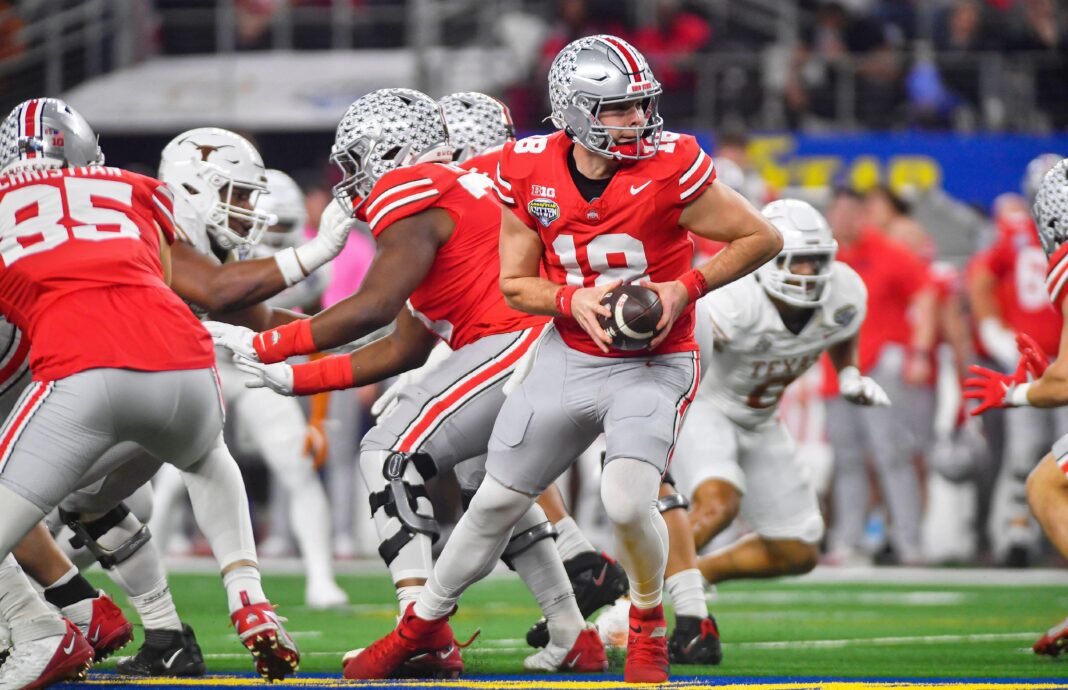Over the last few years, the NCAA’s long-standing restrictions on athlete compensation have been dramatically loosened in response to court rulings, state legislation, and shifting public opinion. As of July 1, 2021, NCAA student-athletes became permitted to profit from the use of their “Name, Image, and Likeness” (NIL). This watershed change has opened the door for sponsorships, endorsements, merchandising deals, social media income, personal appearances, and more.
However, an emerging question, one that is only getting more attention as NIL deals proliferate, concerns taxation. While current tax law and IRS guidance generally treat NIL earnings as taxable income, you may have heard rumors or discussions about a movement to make NIL income either partially or entirely non-taxable for college athletes. Below is a deep-dive into the background, the current tax status, and the state of legislative (and non-legislative) efforts related to whether or not NIL income can be excluded from taxation.
1. Context: How We Got Here
- Historical NCAA Restrictions
For decades, the NCAA maintained strict rules around amateurism, prohibiting student-athletes from earning money for their athletic endeavors or personal “brand.” Scholarship athletes who accepted money or other benefits risked losing their eligibility. - Legal and Legislative Shifts
- O’Bannon v. NCAA (2015): Former UCLA basketball player Ed O’Bannon sued the NCAA over the commercial use of player likenesses. While the ruling was nuanced, it opened the door for discussions about compensating players for their NIL.
- NCAA v. Alston (2021): The Supreme Court unanimously found that the NCAA could not limit education-related benefits for athletes. Though not directly about NIL, the legal momentum reinforced the push for change in how student-athletes could be compensated.
- State Laws on NIL: Numerous states (e.g., California, Florida, Texas) passed laws granting student-athletes the right to monetize their NIL, often with effective dates in 2021 or 2022. This spurred the NCAA to adopt a nationwide, albeit interim, NIL policy rather than face a patchwork of state regulations.
- NCAA Interim NIL Policy (2021)
In July 2021, the NCAA suspended its previous restrictions, allowing student-athletes across all divisions to engage in NIL activities that complied with state law or institutional policy. Almost overnight, some athletes began signing lucrative deals with local businesses, national brands, and everything in between.
2. Current Tax Treatment of NIL
Under existing U.S. federal tax law, money earned by student-athletes from NIL deals is generally considered taxable income. In most cases, this includes:
- Endorsement deals (e.g., wearing a certain brand’s gear, promoting a product on social media)
- Sponsorships
- Autograph signings
- Appearance fees
- Merchandise sales (jerseys, personal brand logos, etc.)
- YouTube or Instagram ad revenue if monetized
2.1 Federal Income Tax
- Ordinary Income: Just like a standard job, the cash and fair-market value of goods or services received are typically subject to ordinary income tax.
- Self-Employment Considerations: If the athlete is operating as an independent contractor or a sole proprietor (e.g., they sign deals on their own rather than being employed by a brand), the student-athlete could also be responsible for self-employment taxes (Social Security and Medicare) on top of standard income tax.
2.2 State and Local Taxes
- Varies by State: States have different tax rates and thresholds. Athletes attending school in a state without income tax (like Florida or Texas) may not owe state income taxes on NIL earnings, though they still owe federal tax.
- Part-Year and Multi-State Issues: Some deals are signed or performed in multiple states (e.g., autograph signings in one state, a photo shoot in another). This can trigger complex multi-state filings.
2.3 International Student-Athletes
- Additional Complexity: Non-U.S. citizens may have visa restrictions that complicate or prohibit certain forms of work income. If allowed, NIL earnings may be subject to international tax treaties and special reporting requirements.
3. Is There a Movement to Make NIL Tax-Free?
The short answer is that no broad federal law or NCAA regulation currently excludes NIL earnings from taxation. However, there have been discussions, proposals, and rumors floating around certain political and athletic circles:
- Federal Legislative Proposals
- Over the past couple of years, various members of Congress have introduced or discussed bills that would create a national framework for NIL regulation. Some have touched on taxation indirectly by discussing athlete status (i.e., are they “employees” of universities or not?).
- As of early 2025, there is no widely advanced federal bill that would declare NIL income non-taxable in a blanket manner. Tax exemptions typically require explicit inclusion in the Internal Revenue Code, and no such provision currently exists or appears close to passing at the federal level.
- State-Level Incentives
- A handful of states have explored the idea of offering state tax breaks on NIL income to gain a recruiting advantage.
- To date, no state has fully exempted NIL income from state taxes. Some proposed legislation in certain states (e.g., exploring reduced tax rates for NIL earnings or tax credits that might favor student-athletes) has been discussed, but these remain mostly in idea or committee stages.
- “Movement” vs. Talk
- Much of the chatter about making NIL income “non-taxable” stems from athlete advocacy groups, certain lawmakers, or alumni boosters who argue that since scholarships for tuition often have tax-advantaged treatment, perhaps NIL, which they see as part of the “student-athlete educational experience,” should receive similar treatment.
- At this time, these arguments have not coalesced into any binding federal or state law. It’s more accurate to describe it as ongoing debate, rather than a near-term legal shift.
4. Why Might There Be Pressure to Exempt NIL from Taxes?
- Equity and Fairness Arguments
- Supporters of an exemption argue that student-athletes already face huge time demands and generate significant revenue for universities. Allowing them to keep NIL earnings without a tax burden is seen as a matter of fairness.
- Recruiting Leverage
- Some states or schools worry that high tax rates will scare off top talent. If a state can tout “low or no state income tax on NIL deals,” that could become a recruiting advantage in a competitive college sports environment.
- Comparison to Scholarships
- Certain scholarships and grants (used for tuition, fees, and course-related expenses) are excluded from federal taxable income under the IRS Code. Advocates of NIL tax exemptions sometimes draw parallels, claiming NIL is an extension of educational opportunity.
- Uncertainty Around NCAA Employment Status
- If at some point the legal system or new legislation reclassifies student-athletes as “employees” of their schools, new tax and labor law implications would follow. However, any attempts to reclassify them typically underscore that NIL is compensation—and thus would naturally be taxed.
5. Practical Implications for Student-Athletes Right Now
- Consult Professionals: Athletes signing NIL deals should treat it like any other business or personal income. This often means consulting with:
- Accountants or CPAs experienced in sports or entertainment income
- Legal professionals for contract review and compliance
- Record-Keeping: Maintaining detailed records of NIL income, expenses (e.g., travel for appearances, equipment purchased for brand-related activities), and receipts is vital. Certain expenses might be deductible if you’re operating as a business entity.
- Entity Formation: Some athletes form LLCs or S Corporations to handle NIL deals. These structures can offer liability protection and, in some cases, tax advantages or clearer record-keeping.
- Be Aware of Where You Earn Income: Endorsements or appearances in multiple states or countries can trigger multi-state and/or international tax filing obligations.
- Stay Updated: Because the legal and tax environment around NIL is still evolving, student-athletes (and their advisors) need to remain informed about potential new legislation at both the federal and state levels.
6. Looking Ahead: Possibilities and Obstacles
- Congressional Action: If Congress eventually passes a comprehensive NIL bill, it might address taxation. However, any effort to exempt or significantly reduce taxes on NIL would face significant hurdles, given how the tax code works and concerns about setting precedents for other forms of income.
- NCAA or Conference-Level Rules: The NCAA does not have the authority to unilaterally change federal tax law. Conferences or individual schools can provide guidance or support, but a total exemption would require formal legislation.
- State Experimentation: A state may attempt a more aggressive NIL tax incentive to attract elite talent. Even if that happens, it would only eliminate or reduce state tax and not federal tax obligations.
- Court Rulings: There is an ongoing national conversation about whether student-athletes are “employees.” If they are ruled employees, that solidifies the notion that NIL is compensation (wages), which is taxable. Conversely, if there’s a wholly new classification for student-athletes, we might see new approaches. Still, it’s not likely to avoid the reach of federal tax entirely without explicit statutory change.
7. How This All Ends
As of early 2025, there is no official framework or imminent legislation that categorically exempts college athletes’ NIL income from taxation at the federal level. NIL income, much like any other compensation or self-employment earnings, remains taxable under current law. While some influencers, politicians, and interest groups have floated ideas about creating special tax breaks or exclusions for student-athletes’ NIL deals, these efforts have not materialized into binding law.
For now, the practical reality is that any money (or other benefits of clear monetary value) earned via NIL constitutes taxable income. Student-athletes, already juggling academic and athletic commitments, must add tax compliance to their to-do list or risk running afoul of state and federal tax authorities. Advisors, coaches, and athletic departments often encourage student-athletes to seek professional guidance.
Should any state or federal legislation arise that changes the tax treatment of NIL, it would undoubtedly make headlines across the sports and higher education landscape. Until then, the safest approach is to assume NIL income is subject to federal (and usually state) income tax, keep comprehensive records, and plan accordingly.

